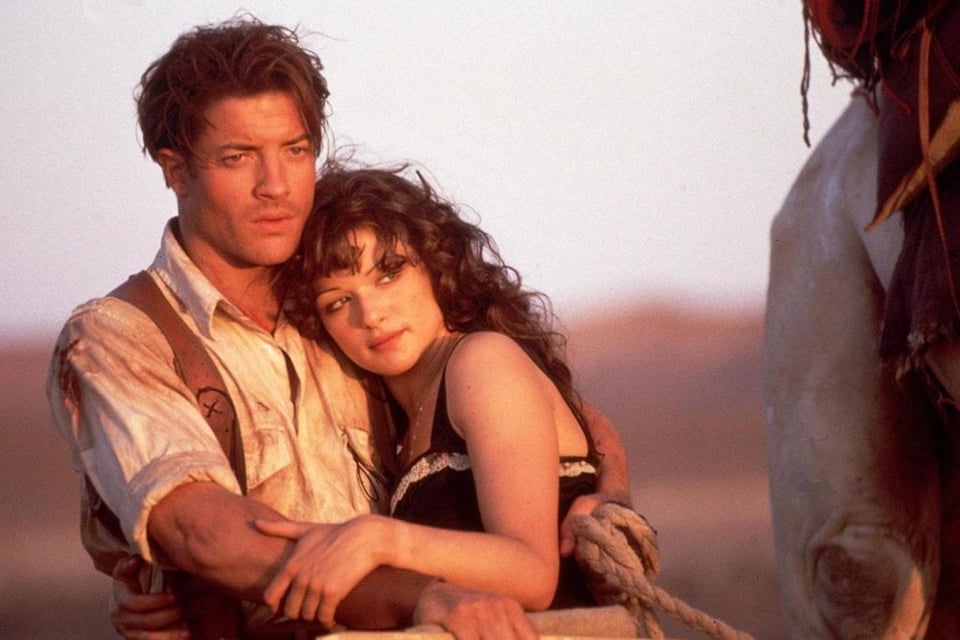Worldbuilding Wednesday #4: All The Small Things
I know, I have that classic Blink-182 song stuck in my head, too!
::crumbles away into dust, Imhotep style from the bisexual classic move, The Mummy::

Today, we’re talking scope, and what Very Big Worldbuilding is useful for, when, and how often, it helps to think about how the use of Very Small Worldbuilding may actually be better.
As before, let us define what we can:
Very Big Worldbuilding includes: planets, suns, country leaders, gods, pantheons, devils, demons, legends, armies, lore, lore, lore!
Very Small Worldbuilding includes: plants, middle class people, their jobs, their dreams, their homes, kinds of drinks, kinds of pets, favorite holidays, least favorite local tradition, and so on and so forth.
And let’s be honest: when you’re meeting someone, is your first question, “Hey new friend! How does your creation myth differ from the one I’ve internalized my whole life?”
God, I hope not. (Unless you really can make it work as an opener, but even I, a guy good at an opener, cannot see that working well). Instead, you normally ask, what?
What do you do? Where do you live? Any siblings? Parents still around? Are you married? Any kids? What’s your passion? Where’d you go to school? Any place good to eat around here? Oh yeah, what do you usually get? Cool.
We can be introduced to a world in a Very Big way. Who doesn’t love epic shit? Who doesn’t dig when an author is so passionate about their cool world that their prologue’s prologue begins, “In the Days of Dark Candles, what light we had came from wringing the soul of the Sun by hand, and so the Burned Saints used scorched palms and scarred fingers to pluck my eye from my head on the day of my Searing.”
Cool? Yeah, sure. Capital letters always indicate something fun. And if you’re writing something epic, don’t shy away from it, (something I’m sure we’ll get into in the future). BUT . . . in my opinion, great worldbuilding knows how to balance the epic and the intimate. AND if you do it well, you can learn about character at the same time.
So think about it this way: if you were living your life in the world you’re building, if you were a normal-ass person living a normal-ass life, what does your day look like? What little things are normal for you, that can show the reader how this world is different and what do the people there value? You can learn a lot about a world by what its people value.
Figuring that out is going to take time, and it’s also part of the fun! A lot of it is just hopscotching your way from truth to truth to truth, like this for example:
A: This is a world in which massive snakes are worshipped; big ol snakes, the size of tractor trailers.
B: But it’s a modern world. They are still worshipped by some, but for the most part, they’re seen as a part of the local ecosystem now.
C: So if some see them as gods and others as part of the world, do each of them have practices the other finds odd, or distasteful? Maybe the worshippers used to lace their morning coffees with faint venom of the god they worship, to build up resistance to the venom. Maybe there is a secret menu at coffee shops where you can request god-venom, worshipping in secret? And for the non-believers, maybe they have begun to train the giant serpents for . . . transportation? Defense? Maybe if you’re a scientist learning to communicate with them, you are proudly ordering your venom?
D: Two characters meet, and one of them overhears the other secretly order god-venom. They didn’t know she was a worshipper, and now, they feel awkward, wanting to smack the venom out of her hands, but not wanting to embarrass her. But of course, she doesn’t find it embarrassing.
E: But when a giant cobra drops people off on the corner outside, and the worshipper sees the other person wave at the rider, now she’s upset; she didn’t know they were training her gods for public transport.
F: Cue tension!
It’s extrapolation upon extrapolation that gets us to a world where the smallest detail like public transport or coffee orders matter, AND say something about our story and our characters, AND what world they occupy. And it gives us tension, too, which is always a needed ingredient.
So think about the little things; we need to have sweeping action, especially in something epic, and scope need not be avoided or shied away from. But it is this, these small details, that truly help a world feel real, lived in, and complex.
Prompt: Take a big idea from your current WIP. Sit with it. Extrapolate that large idea down into something small. If X is true, then Y is true. If Y is true, then Z is true, and so forth. When you have your small, specific details, write a scene in which that is shown, and what it says about your characters. And when all else fails, add a penguin or something.
Reading: Bury Our Bones In The Midnight Soil by V. E. Schwab
Listening To: Andrew Bird